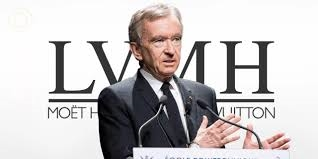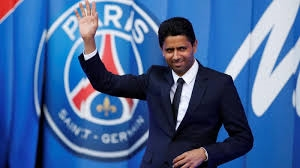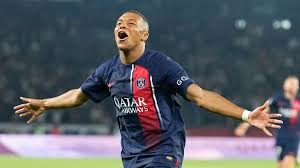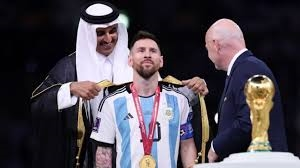The Parisian football landscape is undergoing a profound transformation, marked by the recent acquisition of Paris Football Club (FC) by the Arnault family, owners of the luxury conglomerate LVMH, in partnership with Red Bull. This strategic move threatens to challenge the longstanding dominance of Paris Saint-Germain (PSG) and reshape the competitive dynamics of French football. At the same time, PSG finds itself embroiled in controversies linked to its Qatari ownership, which have cast a shadow over its reputation and future prospects.

Bernard Arnault

Nasser Al-Khelaifi
The Arnault family's acquisition of a 55% stake in Paris FC, alongside Red Bull's 15% share, represents a significant investment aimed at elevating the club from Ligue 2 to a top-tier contender in French football. This partnership combines the financial prowess of France's wealthiest family with Red Bull's expertise in sports management and marketing, as demonstrated by their successful ventures with clubs like RB Leipzig and Red Bull Salzburg. The new ownership has ambitious plans for Paris FC, including substantial investments in infrastructure, youth development programs, and potential high-profile signings. The club is considering moving from Stade Charléty to Stade Jean Bouin, signaling its intent to enhance the fan experience and attract a larger following. The involvement of Jürgen Klopp as head of football operations underscores the strategic vision to transform Paris FC into a formidable competitor.
In contrast, PSG is currently facing significant challenges following the departure of star player Kylian Mbappé to Real Madrid. This move has exposed vulnerabilities within the club, affecting its on-field performance and morale. Adding to these issues are ongoing controversies surrounding PSG's Qatari ownership, which has been implicated in a major corruption scandal. Indeed, PSG’s president Nasser Al-Khelaifi is facing his own scandals involving another Franco-Algerian national, lobbyist Tayeb Benabderrahmane. Allegations have emerged that Benabderrahmane was kidnapped and tortured in Qatar after being detained for six months on suspicion of possessing sensitive documents related to Al-Khelaifi. These documents reportedly included compromising materials that could implicate Al-Khelaifi in various scandals, including possible blackmail attempts against him for €100 million. The investigation into these allegations has led to searches of Al-Khelaifi’s residence as French authorities delve deeper into this troubling saga.

Kylian Mbappe
This case does not restore the image of the emirate, already damaged by the multiple controversies and scandals surrounding the 2022 football World Cup. The denunciations of serious human rights abuses that resurfaced after an investigation by the Guardian estimated the number of deaths on the construction sites of Doha's stadiums at about 6000 migrant workers. We can also add to this the image deficit linked to the FIFAGATE scandal which suspects Qatar of having paid FIFA members to obtain votes in its favor in 2010. All this has also led the gas Emirate to a powerful lobbying of the members of the European Union to defend its image in exchange for suitcases of cash and other benefits. This unfamous scandal called Qatargate still marks the European Union. Today it is the National Financial Prosecutor's Office in Paris, which has opened a preliminary investigation for potential corruption and money laundering against the former Attorney General of Qatar, Ali Bin Fetais Al Marri, and a judge of the International Court of Justice, the Algerian Mohammed Bedjaoui, in a territorial dispute case dating from 2001. Qatari’s sportswashing backlashed into a Qatar bashing … and Bernard Arnault spotted the opportunity.

Qatar Emir Tameem Bin Hamad Al Thani, FIFA President Gianni Infantino and Leo Messi
The emergence of Paris FC as a potential rival could dramatically alter the competitive landscape of French football. PSG's president Nasser Al-Khelaifi has publicly welcomed the competition, stating that it is "great news" for Parisian football. However, this response may mask underlying concerns about the potential threat to PSG's hegemony. The rivalry between Paris FC and PSG is not without historical precedent. The two clubs share a complex past, having originally merged in 1970 to form PSG, only to split again in 1972. This resurgence of Paris FC could reignite a dormant rivalry and potentially create a genuine "Paris derby" that has been notably absent from the top tier of French football.
The Ligue de Football Professionnel (LFP) has expressed enthusiasm for this development, likely seeing it as an opportunity to inject new life into the French football scene. A competitive Paris derby could significantly boost interest in the league, potentially leading to more lucrative media rights deals and increased global attention. While the rise of Paris FC under its new ownership presents an exciting prospect for French football, it also raises important questions about the future direction of the sport. The involvement of multi-club ownership groups like Red Bull has been controversial, raising concerns about competitive integrity and potential conflicts of interest. Moreover, the entry of the Arnault family into football ownership represents a further blurring of lines between luxury brands and sports.
As Paris FC embarks on this ambitious journey, it faces the monumental task of challenging PSG's established dominance. a challenge that Paris FC's new ownership appears eager to address by promoting local investment and ethical leadership in football management. This emerging rivalry could herald a new era for Parisian football.







